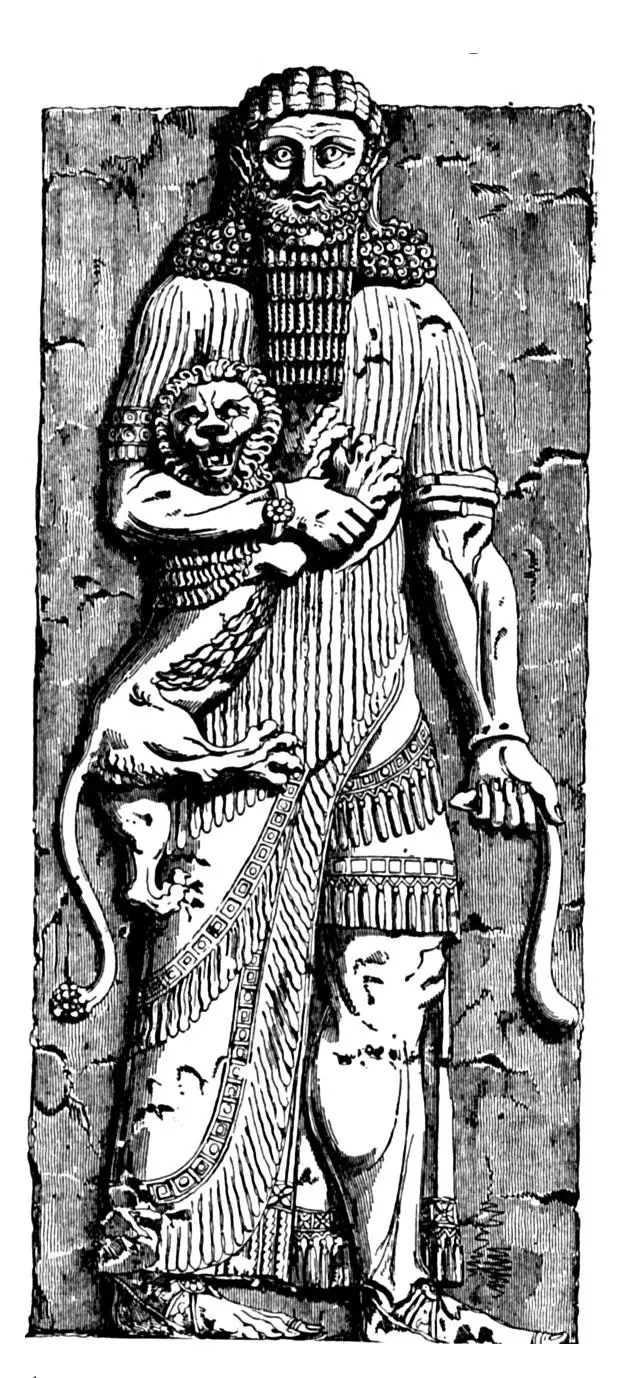Famous Kings of Mesopotamia
Sumerians
Gilgamesh
- Gilgamesh was the king of the city of Uruk. Gilgamesh was regarded as a hero by his people not only due to his courage and beauty but also because he protected them by building a wall around Uruk. He also features in the earliest work of Mesopotamian epic literature: The Epic of Gilgamesh.


Akkadian Empire
Sargon the Great
- Sargon seized power in the Mesopotamian city-state of Kish in around 2334 BC and declared himself as the new king. After defeating the Sumerian King Lugalzagesi of Uruk, Sargon took control of the entire Sumer region of Mesopotamia.
- Sargon built a new city called Akkad on the banks of the Euphrates River. This city stood at the heart of what would become the Akkadian Empire. Eventually, Sargon’s army had conquered large parts of the Middle East and reached as far as Turkey.
Naram-sin
- Naram-Sin is seen as the most successful king of the Akkadian Empire. He was a strong leader and, during his thirty-six years of leadership, the Akkadian Empire expanded its boundaries, going beyond the Persian Gulf and reaching as far as Egypt.
- Trade also increased and Naram-Sin’s empire became rich. Naram-sin was accused of causing the eventual destruction of the Akkadian Empire through his disrespect of the gods who punished him.

Babylonian Empire
Hammurabi
- Hammurabi inherited the Babylonian throne from his father in 1792 BC. He made his city very powerful and successful and set up a strong system of government.
- Hammurabi is probably best known for his law code that ensured order throughout his city.The code was set in clay tablets and it consists of 282 articles. They sought to create a just and fair society where evil deeds would be banished.
Nabopolassar
- Nabopolassar was responsible for the overthrow of the Assyrian Empire and the establishment of the Neo-Babylonian Empire after 626 BC.
- He was a general from Chaldea in the south of Mesopotamia. Nabopolassar recaptured the city and became the leader of a newly independent Babylon.

Nebuchadnezzar II
- Nabopolassar’s son, Nebuchadnezzar II, is credited with rebuilding Babylon. It became much bigger and was a very beautiful city. The new king built a new defensive wall around the city, which had a moat in front of it.
- He also built new temples and palaces, as well as huge bronze gates. The famous Ishtar gates were adorned with blue, glazed tiles and animals that symbolised the gods.
- Nebuchadnezzar expanded the new Babylonian Empire, overcoming Syria and Phoenicia, as well as Israel and Judah to the south.

Assyrian Empire
Shamshi-Adad I
- Shamshi-Adad is best known as the Assyrian king who united Upper Mesopotamia from Syria to the north of Babylonia from 1813 BC onwards.
- He lost his empire to Naram-Sinbut managed to re-establish and expand it after the latter’s death.
Tiglath-Pileser III
- Tiglath-Pileser III led the Assyrian Empire from 744 to 727 BC. He is best known as a tough military leader who presided over the biggest expansion in the history of that empire.
- One of his biggest successes was to merge Assyria with Babylonia although the empire developed vastly beyond Mesopotamia to the west and the east.
Sennacherib
- Sennacherib is famous for his military campaigns against Judah and for overcoming Babylon. He is also well known for his work at the city of Nineveh. Under his leadership, this city became the capital of the Assyrian Empire around 700 BC.
- He built a 7-mile-long wall around the city to protect it from the enemy. He was also behind the construction of one of the most remarkable Assyrian palaces.
Sennacherib
- Sennacherib is famous for his military campaigns against Judah and for overcoming Babylon. He is also well known for his work at the city of Nineveh. Under his leadership, this city became the capital of the Assyrian Empire around 700 BC.
- He built a 7-mile-long wall around the city to protect it from the enemy. He was also behind the construction of one of the most remarkable Assyrian palaces.
Ashurbanipal
- King Ashurbanipal was among the greatest kings of Assyria who is known for being a thoughtful leader. He had a new palace built and started to collect everything that had been written in Mesopotamia. This led to the creation of Ashurbanipal’s famous library. It contained more than 30,000 inscribed clay tablets.

Persian Empire
Cyrus the Great
- Cyrus the Great defeated the medians. After this battle, Cyrus led his army to major conquests and in, 539 BC, Cyrus’s army took Babylon. Cyrus the Great was an unusual Mesopotamian leader in his level of respect and tolerance of different tribes and peoples. In Babylon, Cyrus told the people that if they worked and paid their tax in his land, he would give them the freedom to live according to their own beliefs and customs.
Darius I
- Darius I is remembered for many achievements including the creation of new forms of government for better control, the establishment of a huge roads network and the creation of a postal service.
- He is also known for the disastrous attempt to invade and control Greece in 490 BC which led to a humiliating defeat.
Xerxes I
- Xerxes is best known for the second attempt to defeat the Greeks. In 480 BC Xerxes assembled a massive army for the attack. After an initial victory at Thermopylae and some land gains, Xerxes eventually lost out in the great naval battle at Salamis in 480 BC.



